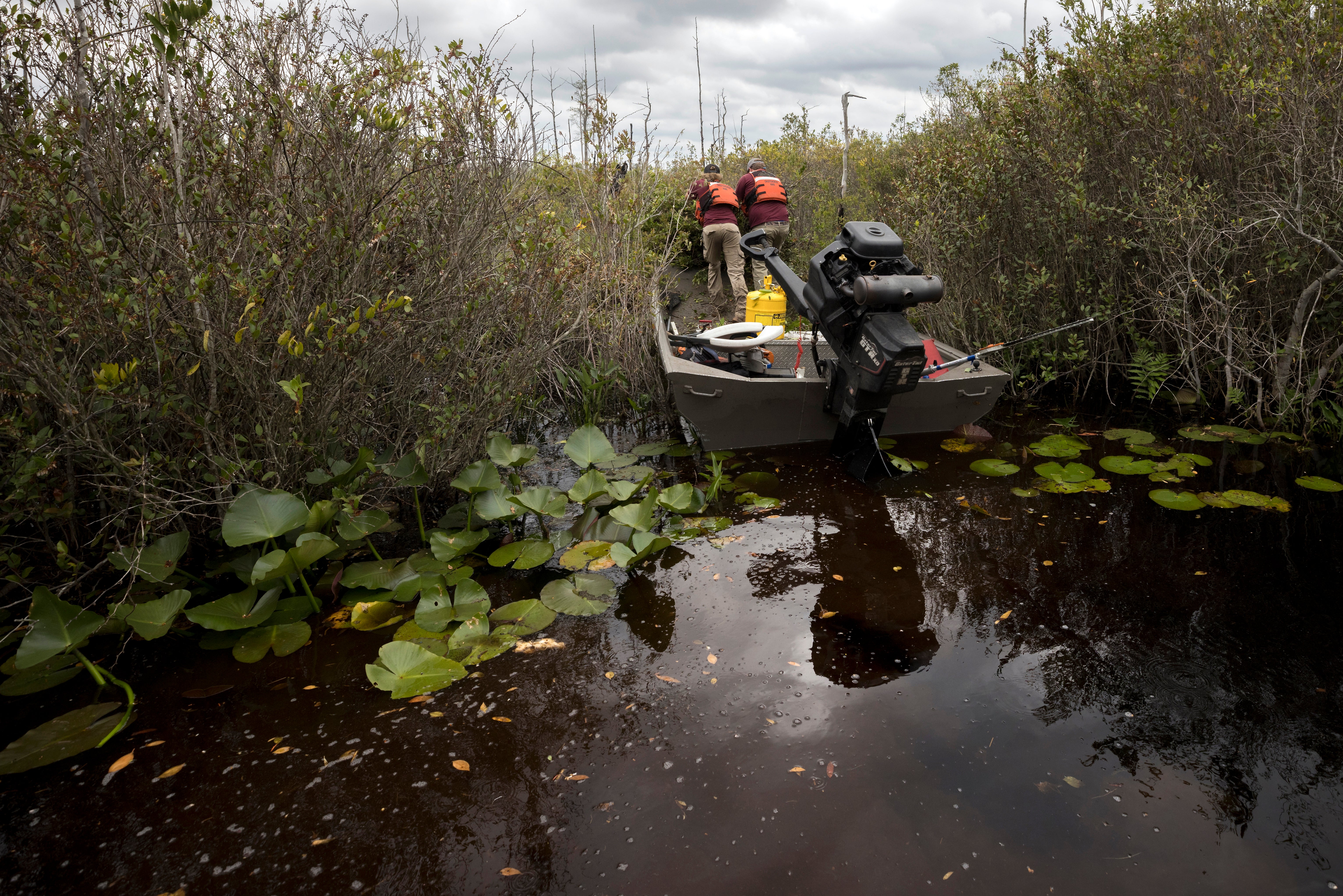U.S. to nominate Okefenokee Swamp refuge for listing as UNESCO World Heritage site
A U.S. agency says it will nominate the Okefenokee Swamp's vast wildlife refuge for a place on the official list of the world's most treasured natural and cultural sites

A U.S. agency said Friday it will nominate the vast, federally protected wildlife refuge in the Okefenokee Swamp for listing as a UNESCO World Heritage site.
The National Park Service filed a notice in Washington that it will seek the designation for the Okefenokee National Wildlife Refuge, which sprawls across more than 400,000 acres (161,875 hectares) in southeast Georgia near the Florida state line.
Conservation groups say the rare distinction would boost the Okefenokee's profile as one of the world's last intact blackwater swamps and home to abundant alligators, endangered red cockaded woodpeckers, stilt-legged wood storks and more than 400 other animal species.
“It would join a long list of iconic American landscapes — the Grand Canyon, Yellowstone, Yosemite," said Kim Bednarek, executive director of the nonprofit Okefenokee Swamp Park that's working with the U.S. government on the refuge's nomination package. “Nobody questions the value of those places.”
Since the 1970s, the World Heritage list has recognized more than 1,100 natural and cultural sites worldwide for having “outstanding universal value” to all of humanity. Just 25 places in the U.S. have been listed, including national parks like the Grand Canyon in Arizona and treasured manmade landmarks such as the Statue of Liberty.
The most recent U.S. addition, a network of ancient Native American ceremonial and burial mounds in Ohio, was announced by UNESCO's World Heritage Committee on Tuesday.
The Okefenokee refuge covers more than 90% of the swamp and is the largest national wildlife refuge east of the Mississippi River. Its diverse wildlife, cypress forests and flooded prairies draw roughly 600,000 visitors each year, according to the U.S. Fish and Wildlife Service, which manages the refuge.
Designation as a World Heritage site wouldn't impose any added restrictions or regulations for the Okefenokee. But conservationists say the distinction of being listed gives governments and local communities an incentive to protect and preserve the sites.
“It means the U.S. is committing to protecting it and ensuring its integrity,” said Elise Bennett, Florida and Caribbean director for the Center for Biological Diversity. “It’s really first and foremost a great honor, and secondly an incentive to protect it and keep it the way it is.”
Becoming a World Heritage site doesn't happen quickly. The U.S. government has listed the Okefenokee refuge as a “tentative” nominee since 1982. It gained momentum this year as Okefenokee Swamp Park, which operates boat tours and other concessions within the refuge, signed an agreement with the Fish and Wildlife Service to raise money to fund the application.
Meanwhile, a group of Georgia congressmen led by Republican Rep. Buddy Carter and Democratic Sen. Jon Ossoff spent months urging the U.S. Interior Department to nominate the Okefenokee refuge.
Ossoff said a World Heritage site designation would have both environmental and economic benefits for the Okefenokee and surrounding Georgia communities.
“It would support efforts to protect and preserve the refuge’s natural and cultural resources and further important scientific exploration and analysis," Ossoff said in a statement. "The nomination would also attract tourism and benefit the local and recreational economy and communities.”
The nomination comes as Georgia environmental regulators are deciding whether to grant permits to a company seeking to mine just outside the Okefenokee. Twin Pines Minerals says it can extract minerals without doing harm, but scientists and other opponents have warned that mining near the swamp's bowl-like rim could damage the swamp's ability to hold water.
Interior Secretary Deb Haaland last year declared the proposed mine poses an “unacceptable risk” to the Okefenokee's fragile ecosystem.
Conservationists sounded doubtful that the World Heritage site nomination would directly affect the decisions of Georgia regulators.
“They’re really on very separate timelines,” said Ben Prater, Southeast program director for the group Defenders of Wildlife. ”It could be a number of years before that (World Heritage) designation is realized. And we don’t have a number of years to address this threat from the mine."
Bednarek said experts will spend at least the next year compiling a detailed nominating package for the Okefenokee refuge that she likened to a “dense, coffee-table book." She said her nonprofit plans to raise $300,000 to $500,000 to pay for the nomination.
At the earliest, she expects a final decision from UNESCO in 2026.
Subscribe to Independent Premium to bookmark this article
Want to bookmark your favourite articles and stories to read or reference later? Start your Independent Premium subscription today.
